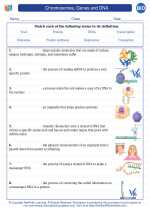Centrosome: Structure and Function
The centrosome is a small, organelle-like structure found in the cytoplasm of animal cells. It plays a crucial role in cell division and organization of the cytoskeleton.
Structure
The centrosome is composed of two cylindrical structures called centrioles, which are made up of microtubes arranged in a specific pattern. The centrioles are surrounded by a protein-rich matrix called the pericentriolar material.
Function
The main function of the centrosome is to organize the mitotic spindle during cell division. The centrosomes serve as the main microtubule-organizing centers (MTOCs) in animal cells. They also play a role in the formation of cilia and flagella, which are important for cell motility and sensory functions.
Study Guide: Centrosome
- Describe the structure of the centrosome.
- What is the main function of the centrosome?
- Explain the role of the centrosome in cell division.
- How does the centrosome contribute to the organization of the cytoskeleton?
- Discuss the significance of centrosomes in cilia and flagella formation.
- Compare and contrast the centrosomes in plant and animal cells.
- Explain the relationship between centrosomes and cancer.
Understanding the structure and function of the centrosome is essential for grasping key concepts in cell biology and cell division. Students should also explore the latest research on centrosomes and their implications in various cellular processes.
.◂Biology Worksheets and Study Guides High School. Chromosomes, Genes and DNA
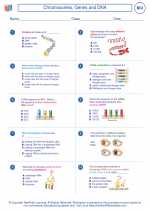
 Worksheet/Answer key
Worksheet/Answer key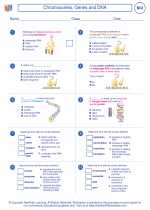
 Worksheet/Answer key
Worksheet/Answer key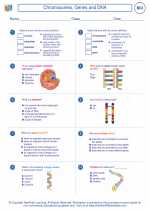
 Vocabulary/Answer key
Vocabulary/Answer key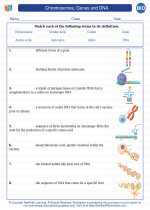
 Vocabulary/Answer key
Vocabulary/Answer key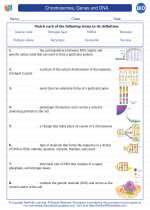
 Vocabulary/Answer key
Vocabulary/Answer key